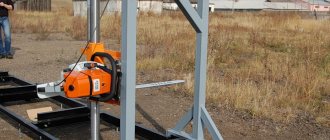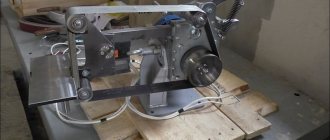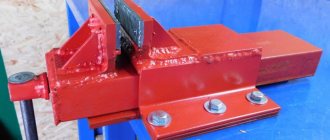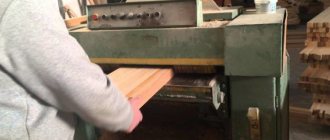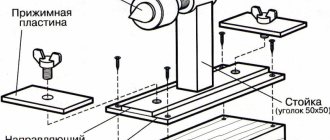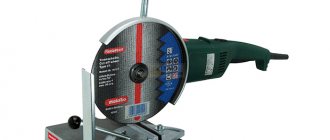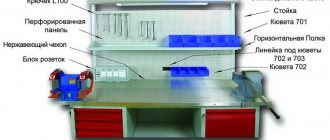Advantages of Hydraulic Scissor Lift Tables
Whether in industry, manufacturing, or warehouses, there is a constant need to lift and move products and materials, a hydraulic lift table is the best lifting mechanism for the tough job. If workers manually, rather than with a hydraulic lift table, perform lifting and moving, the consequences for the company can range from fatigue and low productivity of workers, to serious injuries to personnel and subsequent losses in health insurance and replacement costs. retired employee. In between these extreme cases, minor injuries will constantly occur due to prolonged and repeated lifting and the worker being in an awkward position, which also comes at a cost - pain in the worker's back. Since 2000 Our lifting tables are used in all industries in Russia.
Hydraulic lift tables (mobile or stationary) are the ideal solution to these problems and significantly increase worker productivity, as they have the following advantages:
- Stable Hydraulic Lift Table Platform
Edmolift UC-60 lift table control system allows you to easily program desired functions, such as setting the upper and lower limit switches to limit platform movement. Limit switches and additional control devices are simply connected to the control system.
The main switch and motor protection relay are not included with EdmoLift but must be installed during assembly. The power cable connects to the main power switch terminal blocks.
Despite its name, the standard hydraulic lift table used in various businesses has much more in common with a forklift or elevator than with a conventional table. Nevertheless, similar designs (similar or similar in principle of operation) are widely used in everyday life, although not as a device for lifting heavy loads.
An example is transformable tables, a large assortment of which can be found in any large furniture store; If you have golden hands, experience (albeit small) in carpentry and a lot of free time, you can try to make such a lifting table with your own hands.
Properly made, such a table has a number of advantages, such as:
- Multifunctionality. A transforming table is characterized by adjustable parameters of length, width and height - the lifting mechanism itself plays an important role in this setting.
- Compact dimensions. When assembled, the structure takes up very little space, and when disassembled it turns into a spacious dining table, with enough space for everyone.
- Hidden functionality. Depending on the assembly features, the table may include hidden cabinets and shelves that can be used to store dishes and other things you need.
- Uniqueness. When making a table, you can use any size, any wood and any design delights, which will make the design original and unlike any analogues.
- Ease of use. Any lifting mechanism offered on the market is easy to install and operate. Its assembly and disassembly does not require the use of serious physical effort.
- Reliability. If properly assembled according to the correct drawings, the table will serve you for many years without the need for frequent repairs and diagnostic work.
Making a scissor lift yourself or buying a used one – which is more profitable?
Those who want to construct such a lift with their own hands are faced with one problem - the high cost of components.
The price of new parts is quite high, so many people decide that it is cheaper to buy a used mechanism.
Hydraulic cylinders with good load-carrying capacity and sufficient dimensions are sold for several thousand rubles. You also need special metal to make a reliable lift; such steel is not cheap.
As a result, if you design even a simple scissor-type lifting mechanism, the design will cost about 30-50 thousand rubles. or more expensive. Used scissor lifts are much cheaper.
Let's watch a video about a DIY scissor lift:
Lifting mechanism
There are three types of table lifting mechanisms used in enterprises and at home:
- Transformation of the tabletop. At the same time, its dimensions change - length, width, height, and in some cases, configuration. Perfect for the situation already described, when you need to make a large table out of a small one.
- Raising/lowering table top. In such models, the shape and dimensions remain unchanged; Only the height of the table changes, which allows, for example, to quickly turn a small coffee table into a dining table and vice versa.
- Widespread transformation. Suitable for complex structures that only professionals can make. Here, all parts of the table are movable - both the table top and the legs, which allows you to significantly expand its functionality.
Materials
No less important than the drawings and mechanisms is the material from which the lifting table parts are made. Its strength and reliability, resistance to damage and climatic influences, weight and dimensions of the structure depend on this. So, the most popular types of materials in manufacturing are:
- Chipboard. Combines low price, functionality and pleasant appearance. The material is easy to process, the lightest working surface for a circular saw.
- Fiberboard. Choose slabs with at least a middle plane! Then the material will be as easy to process as chipboard, which will make it possible to produce parts of any shape and size. Environmentally friendly.
- Natural wood. Significantly more durable, although expensive, material. Suitable only for the appropriate interior.
- Glass. It looks original and stylish, takes up little space, and has ample opportunities for decoration. However, it is very important to choose durable glass, otherwise the final structure will be too fragile; Tempered glass is not inferior in strength to hard wood.
- Metal. The most durable and heaviest material, harder than others to process. Not recommended for home installation; although some small models are relevant for such modern stylistic trends as loft and high-tech.
Drawings for making a scissor lift with your own hands
If you prepare a detailed drawing of the lifting mechanism in advance, the assembly of the scissor lift will be greatly speeded up. Therefore, the first step is to carefully consider the dimensions of the equipment.
Analyzing various models of both home-made and factory lifts, all the nuances, subtleties and dimensions of the device are considered, taking into account the advantages of the existing models, from which all sorts of disadvantages are excluded.
It is important that the drawing of the scissor device is developed for a specific lift, otherwise it will not be possible to make an absolute copy of it, since the dimensions of each equipment are individual.
However, by thinking about the design features of existing models and studying the drawings, you can design a scissor-type lifting mechanism yourself quite quickly, the design will be reliable and of high quality.
To assemble a lifting device strictly according to the drawings, engineering knowledge and special skills are required; this can be done by a real specialist.
In addition, not every master will independently create a drawing of an individual lift model.
Most often, if you need to draw a lifting table, you have to turn to professional engineers.
Components
Having decided on the type of mechanism and working material, let’s make a short list of parts that you can’t do without during assembly:
| Lift tables EdmoLift consist of two or more scissor arms with one or more hydraulic cylinders. The raising and lowering of the scissor arms occurs synchronously due to a mechanical connection. The scissor block bearings are standard plain bearings. Extreme operating conditions with heavy loads, high speeds, in difficult environments or over multiple shifts may require HD equipment, i.e. bearings that are stronger than those used in the standard version. Lifting force is achieved through one or more single-acting piston hydraulic cylinders, the lifting movement of which is ensured by pushing lever pairs. Each hydraulic cylinder is equipped with a mechanical diaphragm sleeve relief valve in combination with an electric lowering valve, which is directly located on the cylinder or mounted on a pipe between the hydraulic cylinders. The electric diaphragm safety valve of the hose only opens when a button on the control device is pressed. In addition, the hydraulic power unit contains a flow regulator valve, which, after supplying fluid, is set to the desired lowering speed (max. 60 mm/s). To provide crush protection, the lift table is equipped with a safety edge located under the outer edges of the platform. When activated, it stops lowering. To continue lowering, the platform must be raised to reset the guard. Read also: Starter with start-stop buttons in the housing |
| Diagram of the hydraulic lift table |
Typically, scissor lifts or lift tables (as they are properly called) can be used to position material so that workers do not have to lift excessively heavy loads and repeat the repetitive motion of lifting and bending while doing their jobs.
Hydraulic scissor lift tables can be easily adapted to any plant situation by selecting the required lifting power option.
Scissor lifts can be installed in a variety of ways to suit customer requirements. Also, lifting tables can either be fixed in one position or will move.
Download Edmolift Hydraulic Lift Table User ManualAre you interested in buying Swedish Edmolift lift table, manufactured in Europe, at the prices of Russian analogues? Please note how our high-quality Hydraulic lifting tables differ from inexpensive analogues presented on the Russian market.We have been supplying lifting tables for more than 50 years in Europe and 15 years in Russia and have an extensive supply geography. In addition to selling lifting tables, we carry out installation and maintenance of purchased lifting tables ourselves or through our dealers.1. Steel quality
. Edmolift lift tables use exceptionally durable, high-quality rigid steel to construct the platform. This prevents the formation of dents on the surface from the legs of racks and carts.
2. Unprecedented operational safety
.
Hydraulic lift tables. The mandatory presence of a safety edge is a special device - a bar located below along the entire perimeter of the table
. When this bar is pressed against the platform, if a foreign object is pinched or found under the platform, the table is blocked and further downward movement is impossible until the table surface is raised.
3. Workmanship
. All Edmolift tables are assembled in Europe, according to European quality control standards. European build quality means not only the absence of sharp seams and burrs on the metal, but also guarantees that during operation no nut will be unscrewed and no mechanism will fall off.
4. Dimensions guarantee
. Edmolift tables fully comply with the stated overall dimensions and stated geometry. This is achieved by using laser cutting of metal - the most accurate technology at the moment, while existing analogues may have significant tolerances.
5. Aesthetics
. In the manufacture of Edmolift lift tables, automatic welding is used, which not only joins metal better than manual welding, but also does not leave thick seams that spoil the appearance of the product.
6. Usage access control
. All Edmolift lift table control panels are equipped with a keyed locking mechanism. This avoids accidental or deliberate unauthorized starting of the lift table.
7. HP system protection valve
. The Edmolift high-pressure lift table system uses special valves to cut off the hydraulic system from the ramp when the specified lift values are reached. Thanks to this, additional stress in the hydraulic system that arises during loading and unloading operations does not threaten the high pressure hose and its other elements.
Components of hydraulic scissor lift table:Lifting Hydraulic Scissor Table Frame
Scissor Lift Table - Lift Table Mechanism
Top platform of scissor lift table
Hydraulic station for scissor lift table
Hydraulic lift table control panel
The standard control panel can be either push-button or foot-operated.
Read also: Gas and oxygen consumption when cutting metal
Foot control panel UC60With two functions. Safety switch with interlock with 3 meter cable.
| № | Helpful information |
| 1 | Durable base board |
| 2 | Plywood for table top rim |
| 3 | Elements for creating legs - wooden blocks, metal pipes, corners |
| 4 | Parts for load-bearing walls |
| 5 | Power tools - drills, jigsaws, saws |
| 6 | Brushes for painting and varnishing |
| 7 | Brass hinges |
| 8 | Fasteners |
| 9 | Lots of sandpaper |
| 10 | Paint, varnish and stain |
Remember that this is only a standard set, and for each individual situation, especially depending on the required functionality (or technical specifications) of the table, it can change and expand.
Now let’s move on to the most important element, without which all the others will be completely useless:
Read also: Centerless grinding machine 3m182
Blueprints
The basis of any design work is a competent, carefully thought out and calculated drawing. You can get such a drawing in three ways:
- The first way (the easiest) is to find it on the Internet. However, just as the simplest path rarely leads to the desired result, so here, at the end of the work, you can get something that is not what you wanted at first - such drawings are rarely reliable and accurate.
- The second way (the most reliable) is to seek help from a specialist. At the moment, there are many construction companies, as well as individual craftsmen who are ready to provide you with any advice and services at your expense. Before contacting them, make a complete list of wishes, in particular regarding dimensions, material and design.
- The third way (at your own peril and risk) is to make the drawing yourself. Suitable only if you yourself are the master mentioned above. You can always find all possible help on the Internet, on forums and websites of construction stores.
After which comes the turn of the work itself - it is necessary to cut and saw the workpieces, treat them with stain and varnish, paint and dry them, then connect them according to the prepared drawing and install the lifting mechanism.
Frankly speaking, it is difficult to provide any universal instructions for making a lifting table - there are too many varieties, modifications and configurations, ranging from the simplest to complex multi-sectional structures with a large number of moving elements.
After this, the device turns on; at the same time, a movable mechanical “arm” begins to rotate, at the base of which rolls of film are fixed, carrying out a smooth and widespread winding of the load. At the same time, it is possible to adjust both the speed of movement of the “hand” and the level of film tension, which allows you to significantly reduce its costs (two to three times!). After which the load is removed from the platform, a new one is installed and the process is repeated.
Automatic pallet packers operate both autonomously and as part of a conveyor belt - this is especially beneficial when working in large industries with a large turnover of goods.
The only disadvantages of this type of device are the inability to work with cargo of non-standard, too small and large dimensions, as well as the high price (however, this will not be a problem for wealthy enterprises - besides, the initial costs will undoubtedly quickly pay off).
Creating a lift
a car lift in the garage with your own hands as follows:
- Supports are created using steel corners, which are driven into a wall with high load-bearing capacities. A plate about one centimeter thick is placed on the corners, which is secured with bolts.
- The force will be transmitted via a worm gearbox. It can be found extremely often today, since a similar mechanism was previously used to create a wide variety of devices. Holes are made in the plate for the circuit, after which it is passed through and closed. A key is placed on the output shaft of the worm gearbox.
- The output shaft is fitted with a sprocket suitable for the chain being used.
- Two more holes are created in the plate to pass the chain, which will end with a steel hook.
This design is most suitable for lifting engines and other heavy units. It is less suitable for lifting a vehicle.
In conclusion, we note that it is almost impossible to create a classic lifting device, which is found at service stations, using scrap materials. To work with the chassis or underbody of a car, you can create a tipper.
